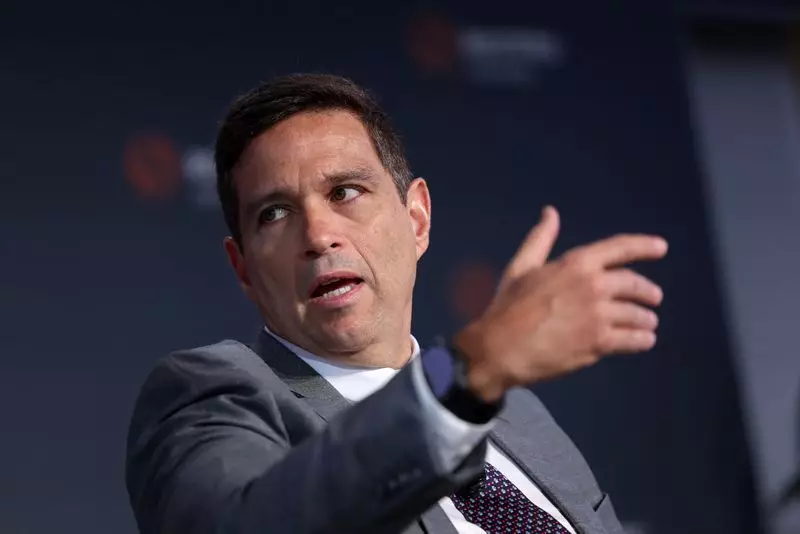As the U.S. gears up for its elections, market analysts are increasingly wary of the inflationary implications stemming from potential outcomes, particularly if Republican candidate Donald Trump emerges victorious against Democrat Kamala Harris. Roberto Campos Neto, the central bank chief of Brazil, recently highlighted these concerns amidst his discussions at a high-profile event during the International Monetary Fund (IMF) and World Bank annual meetings. With both U.S. candidates advocating for fiscal expansion, the global market’s apprehension is palpable, as decisions made in Washington could significantly sway financial conditions not just in the U.S., but also in emerging markets like Brazil.
The intertwining of U.S. economic policies and global market stability suggests a complex relationship that Brazilian policymakers must navigate carefully. The possible introduction of protectionist measures and revised immigration policies by the incoming U.S. administration could intensify inflationary pressures worldwide, particularly if they are accompanied by economic growth strategies that favor domestic agendas over global partnerships.
The Brazilian Inflation Context
Turning the lens on Brazil, Campos Neto noted a recent uptick in the country’s inflation statistics. As of mid-October, the inflation rate stood at 4.47%, which notably exceeds the official target of 3%, allowing for a tolerance margin of 1.5 percentage points. Such figures signal that while the economy is recovering, it is also contending with pressures that may exacerbate consumer prices further. Nevertheless, Campos Neto offered a glimmer of hope with the Brazilian government’s announcement about lowering energy tariffs effective November, a step that is anticipated to alleviate some inflationary pressures and adjust economists’ forecasts favorably.
Moreover, the notion that Brazil’s inflation challenges are more benign than those faced by other nations offers a nuanced perspective. It underscores the importance of context; while Brazilian consumer prices are currently elevated, they may be situationally influenced by external factors, including global commodity prices and domestic fiscal policy responses.
Fiscal Responsiveness and Market Stability
Campos Neto also emphasized the critical need for solid fiscal management to restore confidence in Brazil’s economic outlook. He suggested that upcoming municipal elections could potentially pave the way for strategic announcements aimed at addressing the prevailing fiscal concerns and reducing risk premiums that have encumbered Brazil’s yield curve.
Importantly, he pointed out that the current state of Brazil’s public accounts does not starkly deviate from many countries facing fiscal challenges globally. This indicates a shared struggle among nations, providing a backdrop for Brazil to assert its financial strategy without falling into the echo chamber of economic despair.
As Brazil prepares for its next central bank policy meeting on November 5-6, the spotlight will be on whether the bank can effectively respond to both domestic and international inflationary pressures through calculated rate adjustments. Economists predict that a significant hike of 50 basis points may be on the horizon, following a previous 25 basis-point increase. This potential decision reflects a robust commitment to achieve the inflation target and stabilize the economy during these uncertain global economic times.
As Brazil navigates the complex interplay of domestic inflationary challenges and foreign influences, strong fiscal policy combined with prudent monetary actions will be pivotal in ensuring economic resilience and market confidence across the board.

